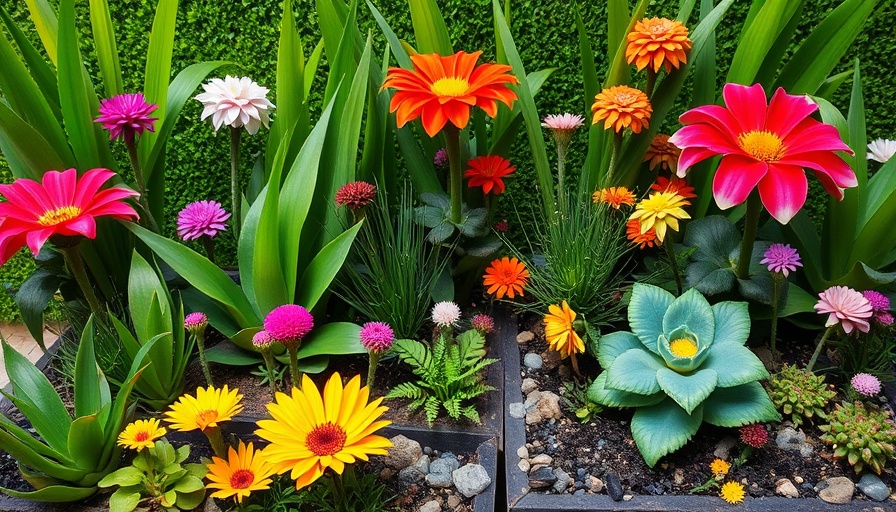
Transform Your Garden: The Power of Recycling
As homeowners become increasingly eco-conscious, the allure of creating a recycled garden grows stronger. Using recycled materials in your garden not only promotes sustainability but also adds a unique flair and character to your outdoor space. Whether you've got a modest courtyard or a sprawling backyard, the principles of thrifty gardening and creative recycling can be your allies.
Why Choose Recycled Materials?
Choosing recycled materials is a step toward sustainable living and also a wallet-friendly strategy. By repurposing what’s readily available rather than buying new, you conserve valuable natural resources. Interestingly, recycling even a single piece of furniture can offset around 240 pounds of CO2 emissions—impressive for such a simple act!
Where to Find Recycled Garden Treasures
Finding vintage or recycled garden items can feel like a treasure hunt. Thrift stores, flea markets, and local salvage yards are great starting points. Facilities like Habitat for Humanity’s ReStores and Emmaus sell a variety of second-hand items, often at reduced prices, making it easier to furnish your garden authentically. Online auction sites such as eBay and Craigslist can also have hidden gems.
Innovative Ideas for Upcycling
The charm of upcycling lies in creativity. For instance, old chairs can be transformed into planters; simply drill drainage holes and place them according to your floral vision. Rusted buckets can serve as whimsical flower pots, while wooden pallets can form rustic seating areas. Each piece in your garden tells a story, reflecting both your style and commitment to sustainability.
Unique Benefits of a Thrifty Perspective
By embracing a recycled approach, you’ll not only save money but also create a garden that’s distinctively yours. The beauty of thrifted items is that no two gardens look alike—they carry personal narratives and character. Consider the rustic charm that a weathered bench can bring compared to a brand-new plastic equivalent.
Building Community Through Gardening
Engaging with your community can enhance your garden project. Neighborhood exchanges or community gardening events offer chances to swap materials or even plants. You can also join local gardening groups online for inspiration and resources on recycled gardens. This approach fosters a sense of belonging and collective action toward sustainable practices.
Challenges and Considerations in Recycling
While recycling in gardening is beneficial, it's not without challenges. You'll need to consider the durability of your materials and their compatibility with the garden environment. For example, avoid treated wood that could leach harmful chemicals. Always experiment and research to find what fits your landscape best.
The Future of Gardening: Sustainability in Style
Sustainability is more than a trend; it's a movement toward responsible living. In the coming years, we’ll likely see an increase in the popularity of eco-friendly gardening solutions. Anticipating efforts like this in your garden design not only positions your space to be trendy but also firmly rooted in modern environmental consciousness.
Final Touches for a Sustainable Outdoor Space
Complete your recycled garden with décor and finishing touches, from re-purposed tin cans to old bicycle wheels. The possibilities are limited only by your creativity. Whether using ceramics or reclaimed wood, each addition contributes to a cohesive look that speaks to your environmentally friendly ethos.
Your Call to Action: Start Your Own Recycled Garden Today!
Now that you're inspired by the incredible potential of recycled gardening, why not take action? Visit a thrift store this weekend or check local online marketplaces for the perfect piece to breathe new life into your garden. Remember, the journey of creating a sustainable garden full of character begins with a single step—and there are endless beautiful paths to explore!
 Add Row
Add Row  Add
Add 




Write A Comment